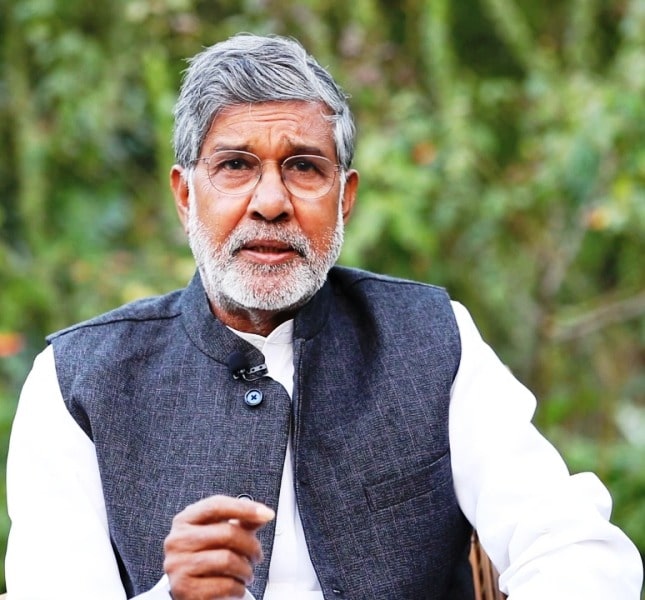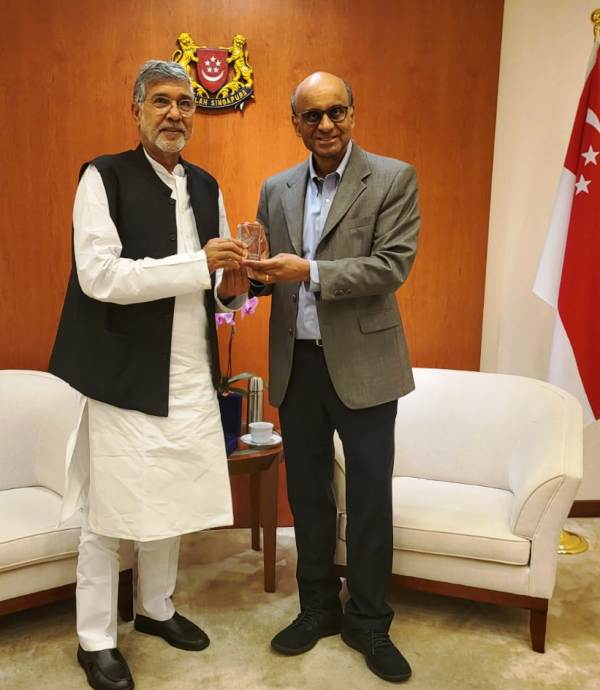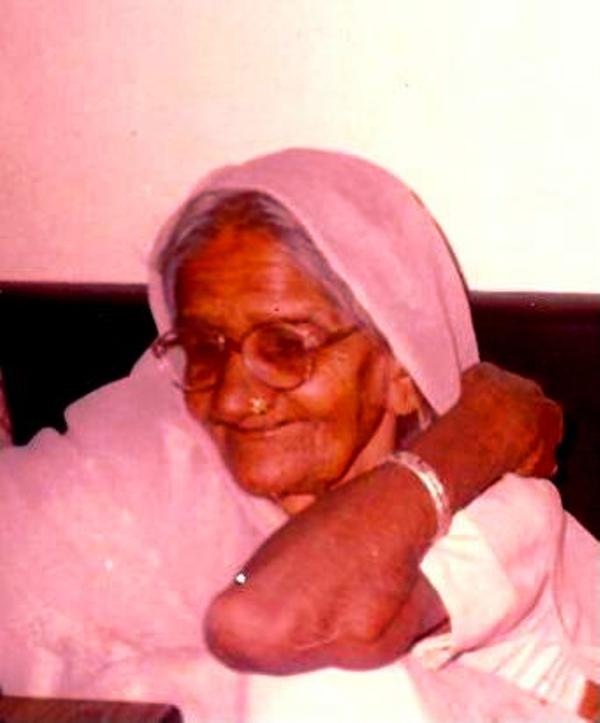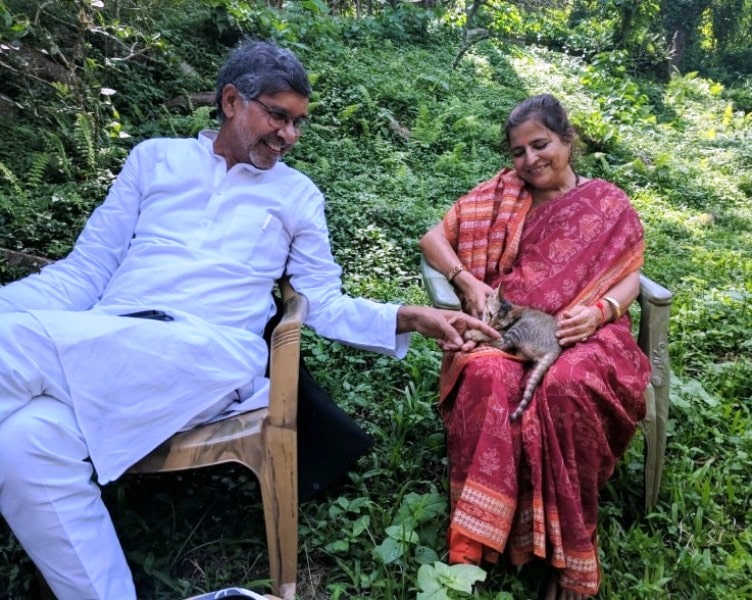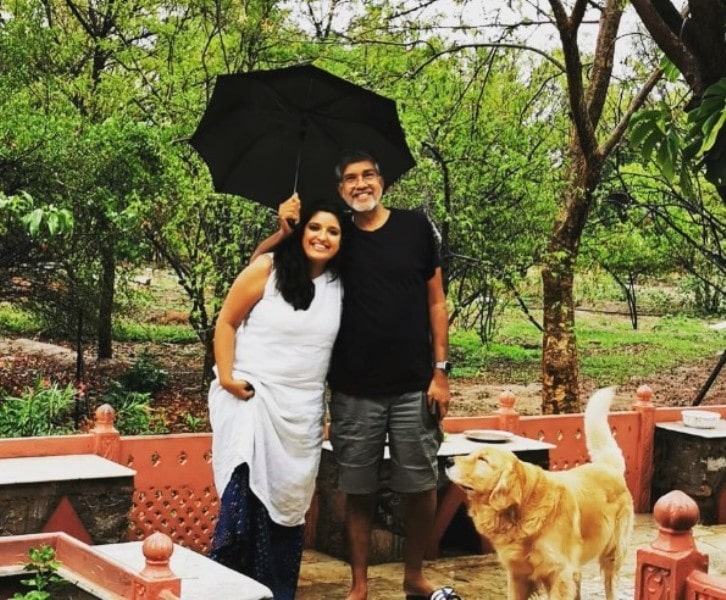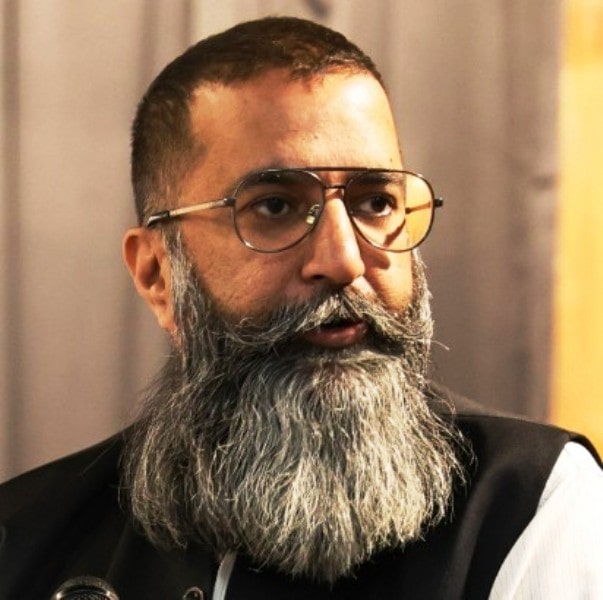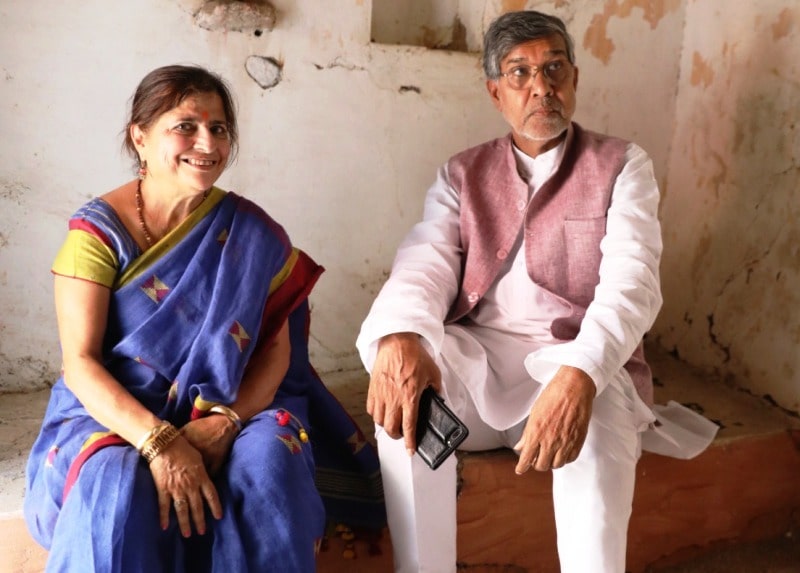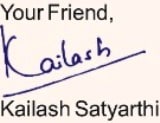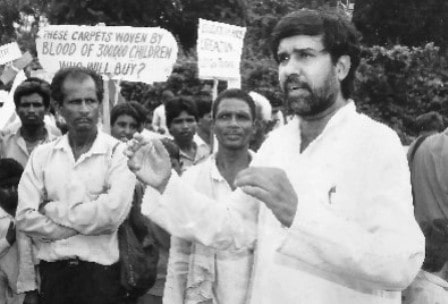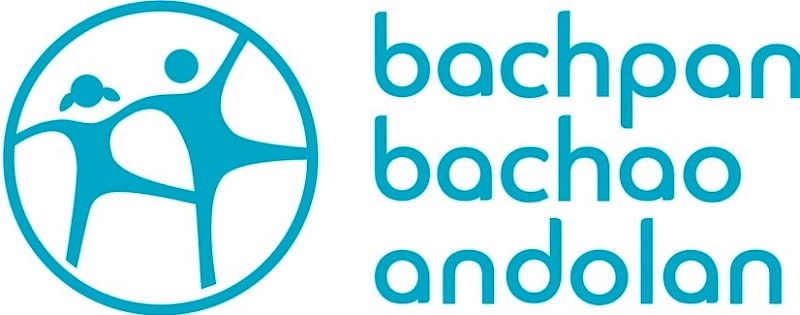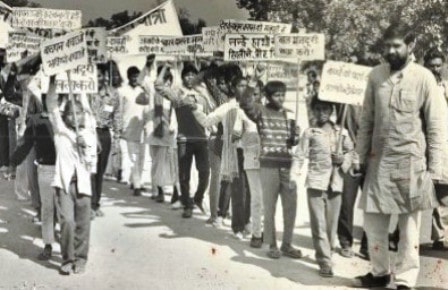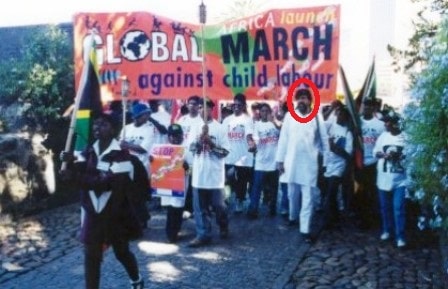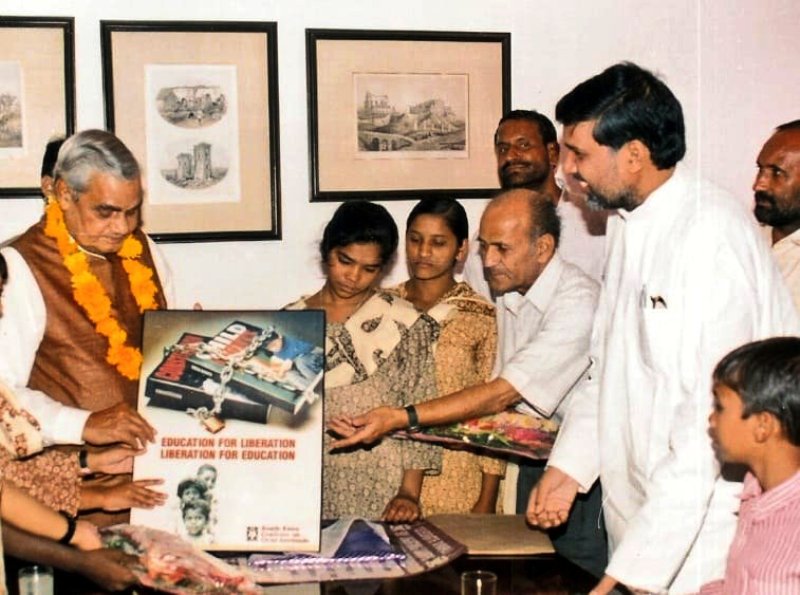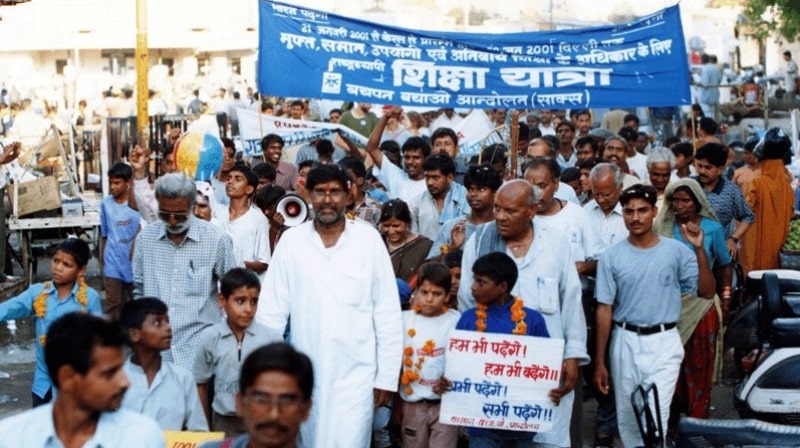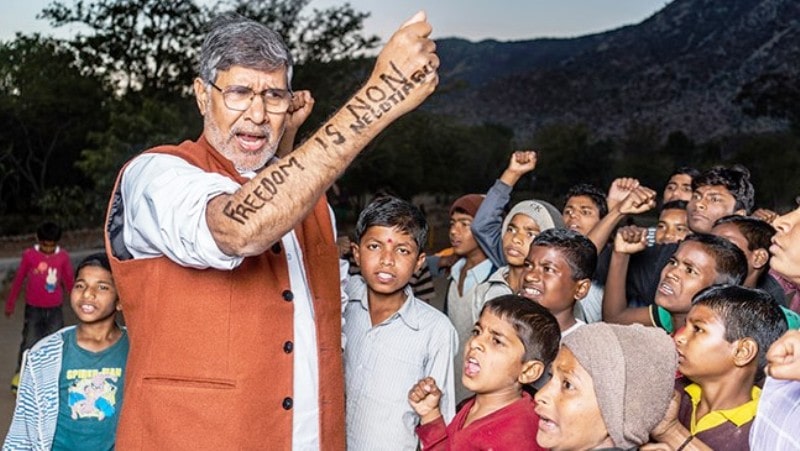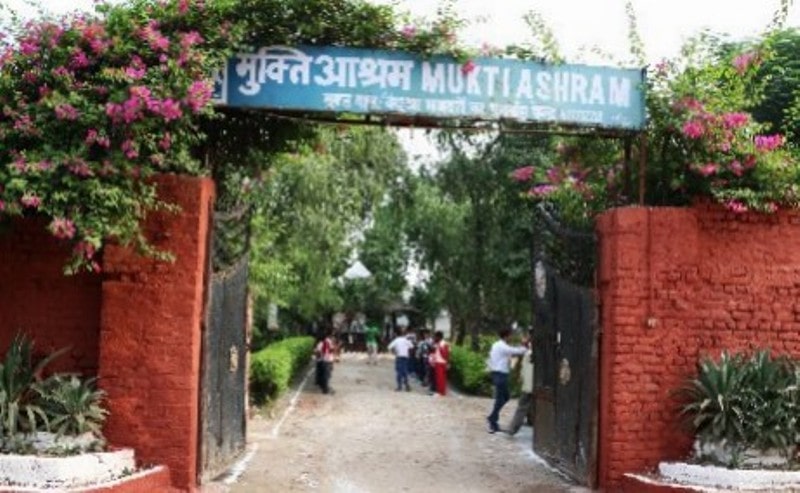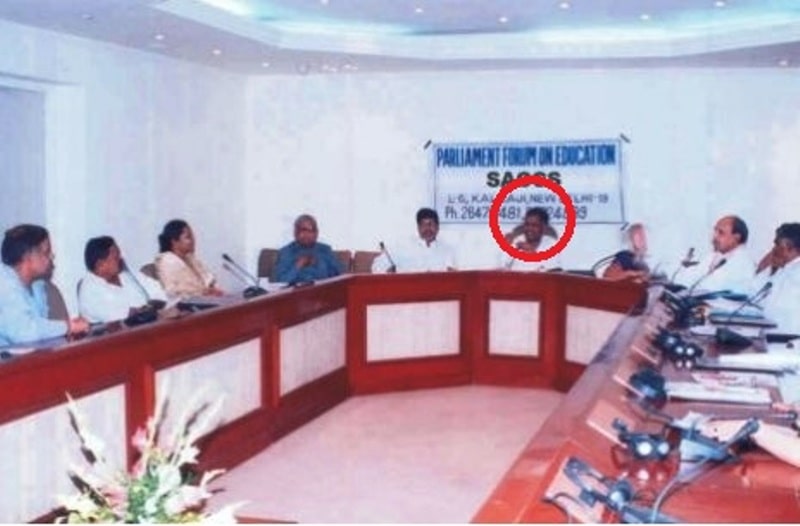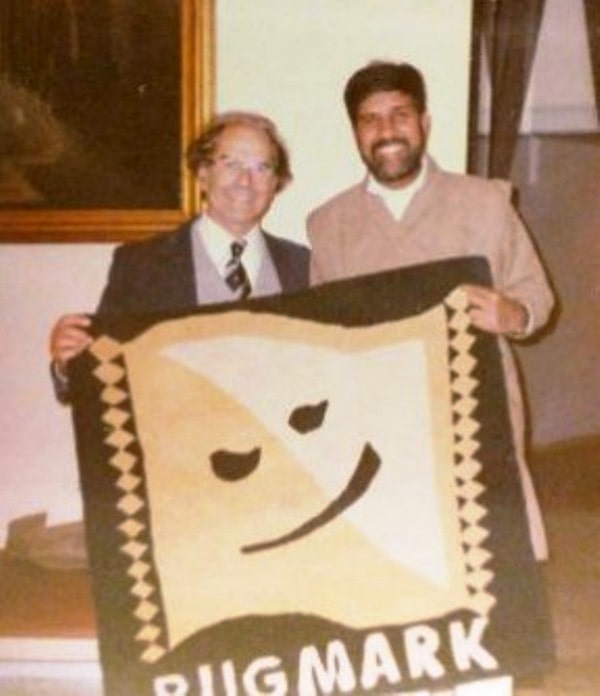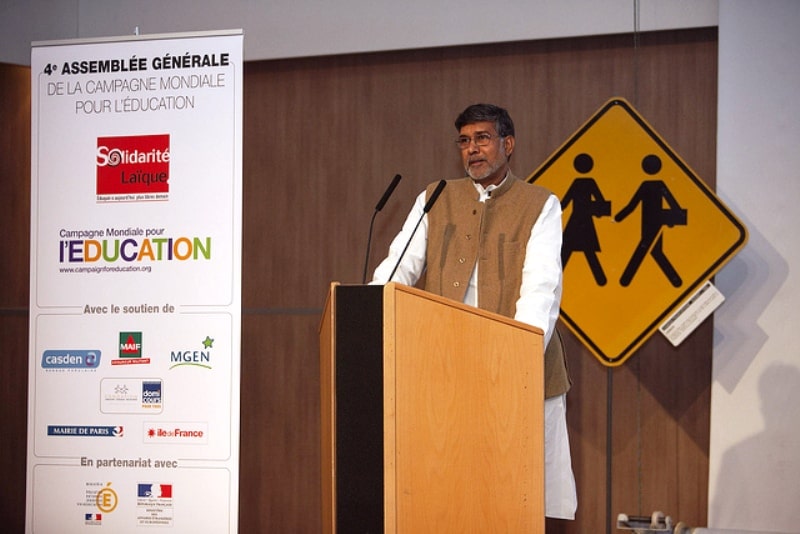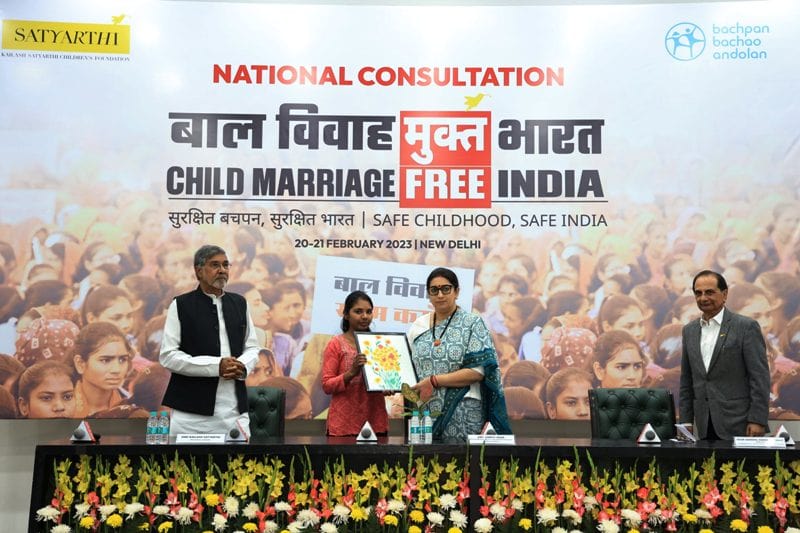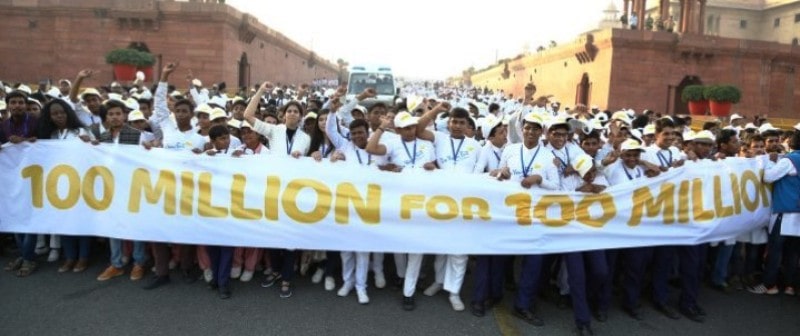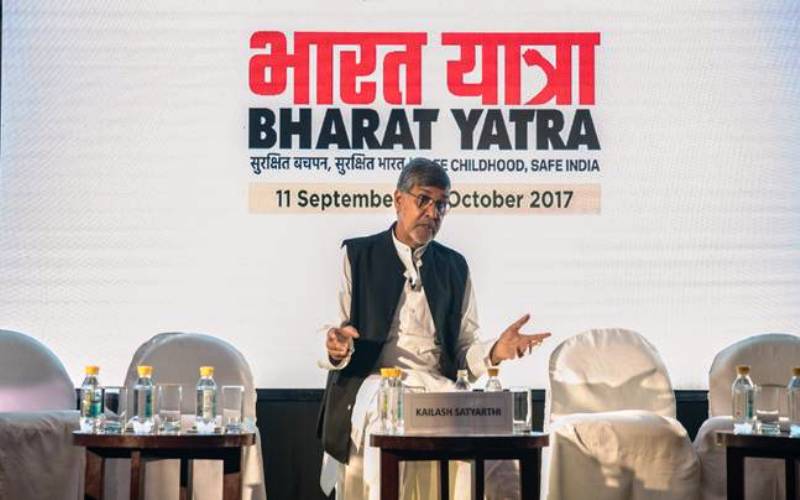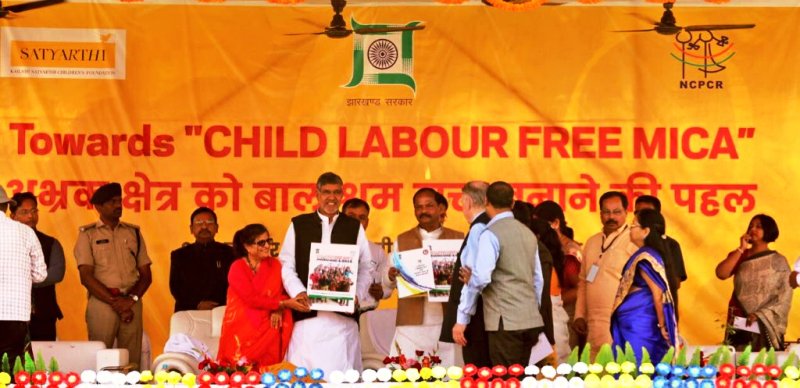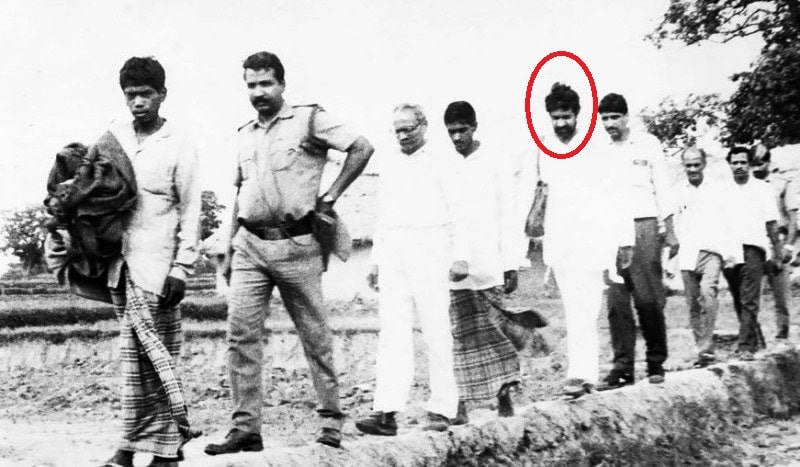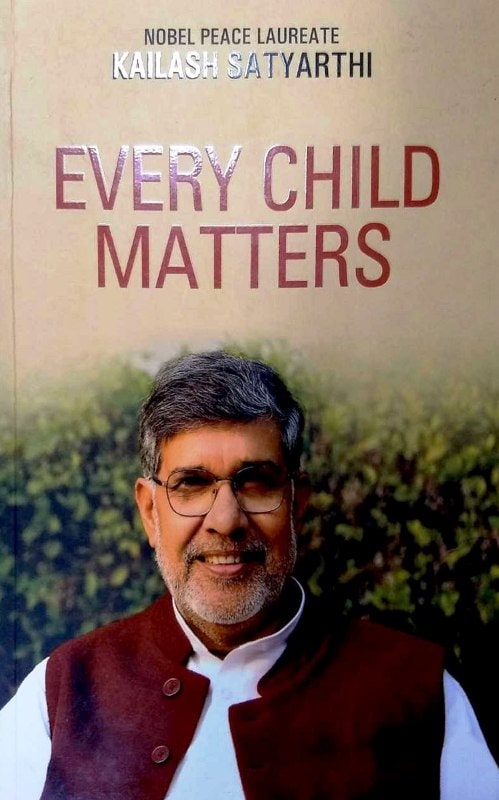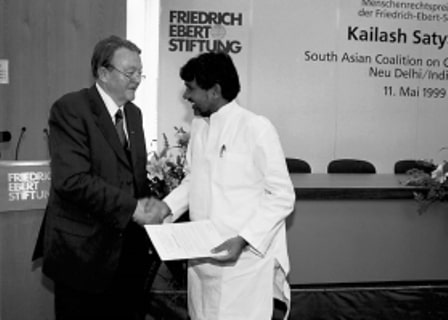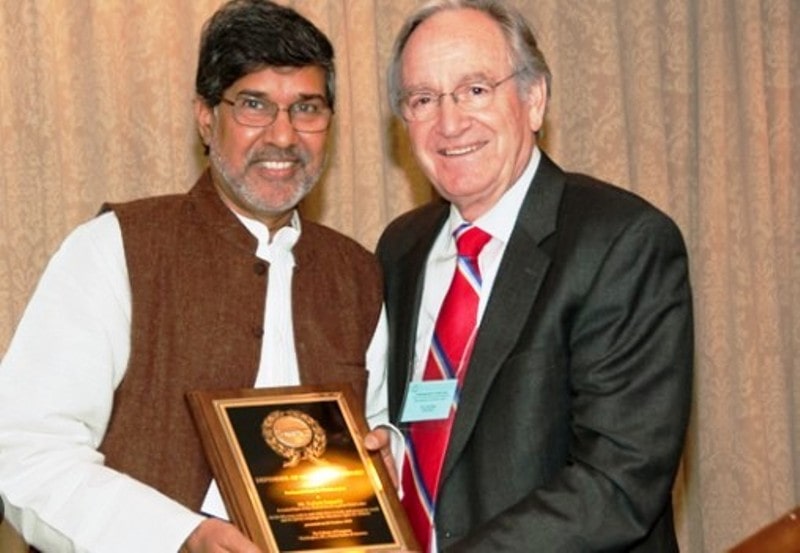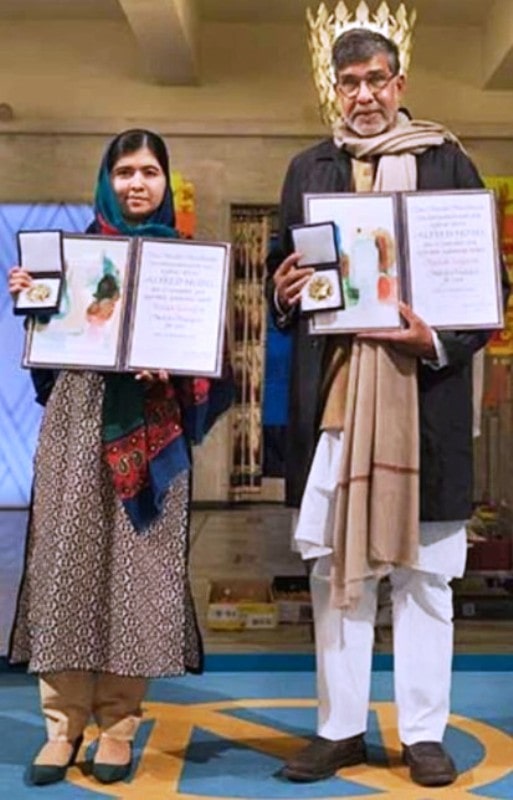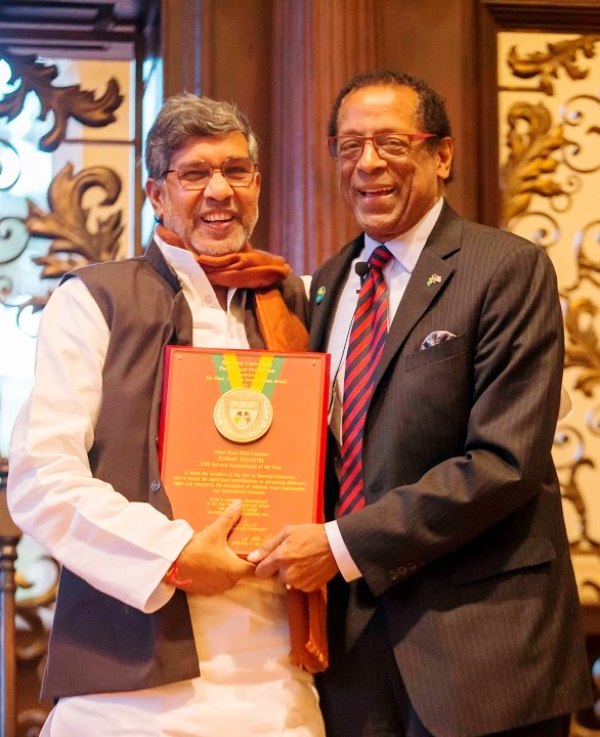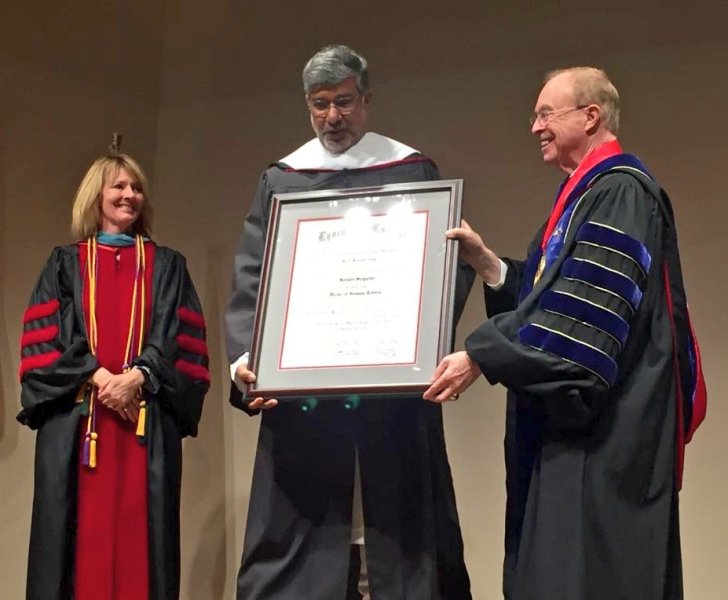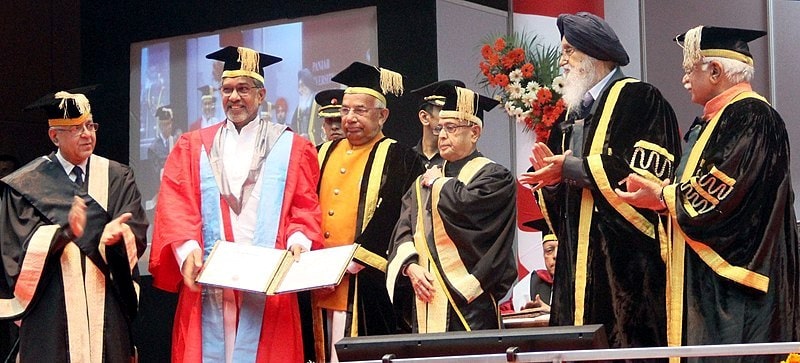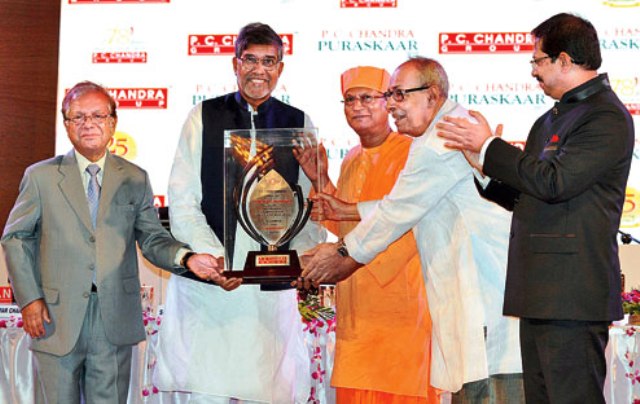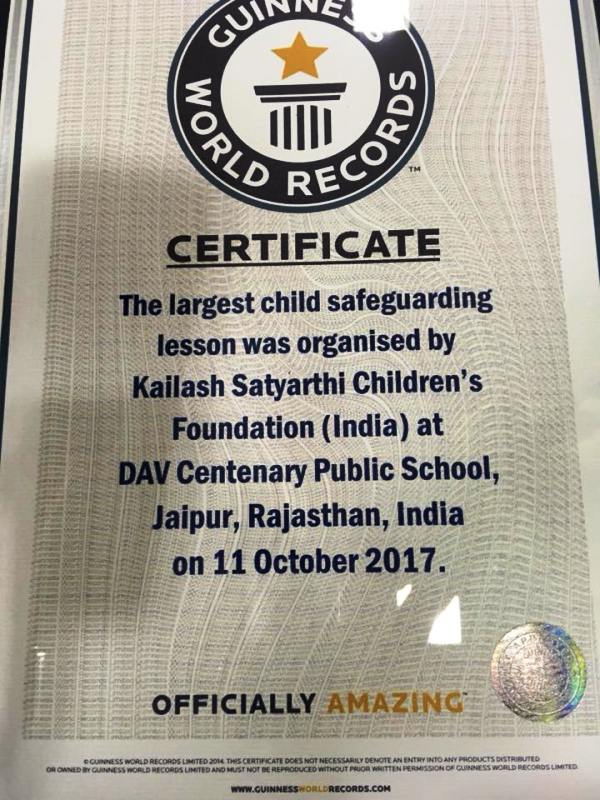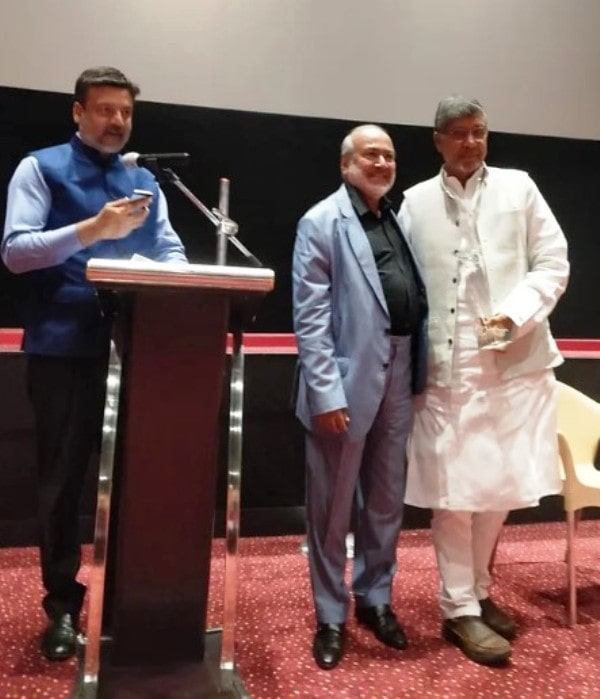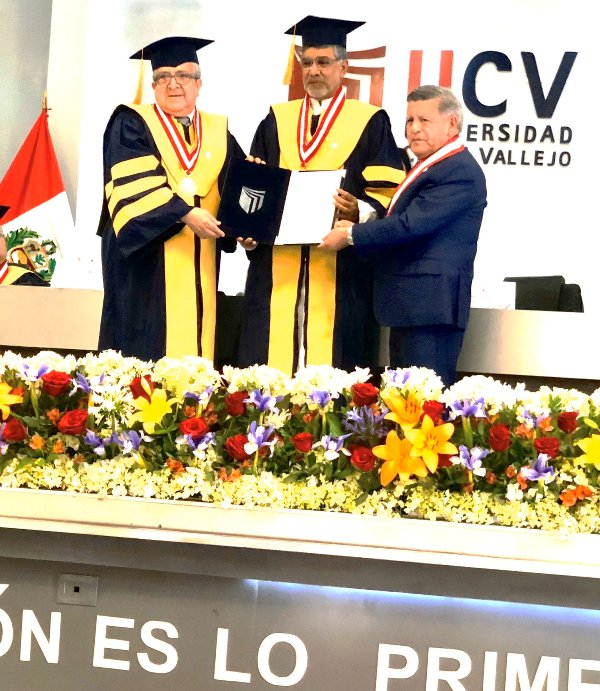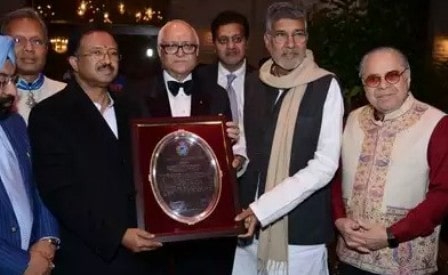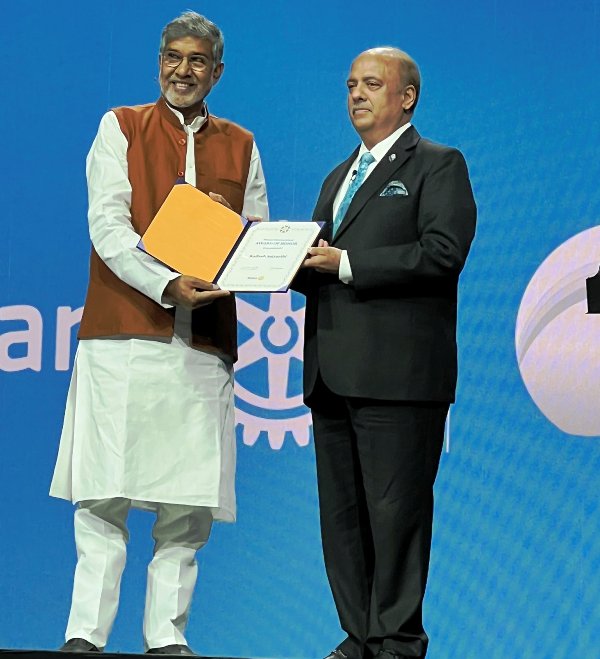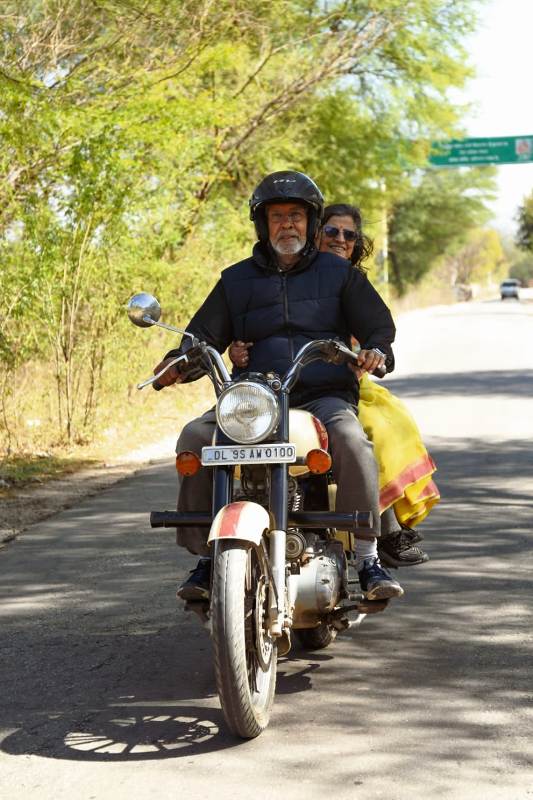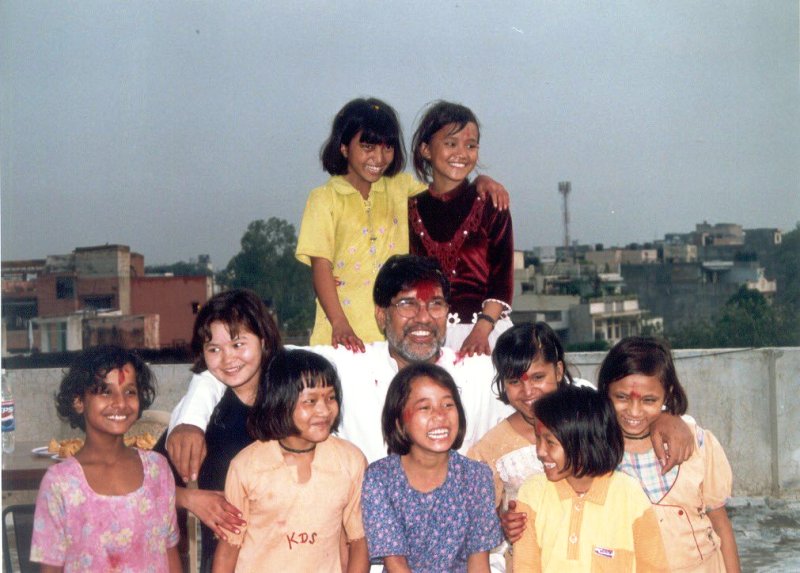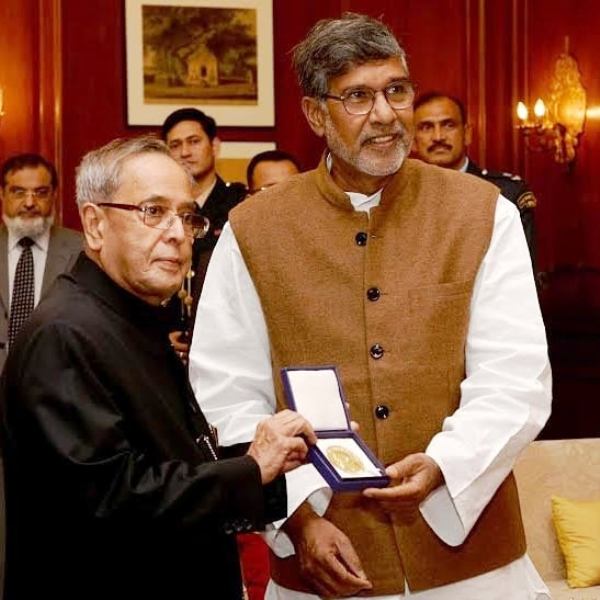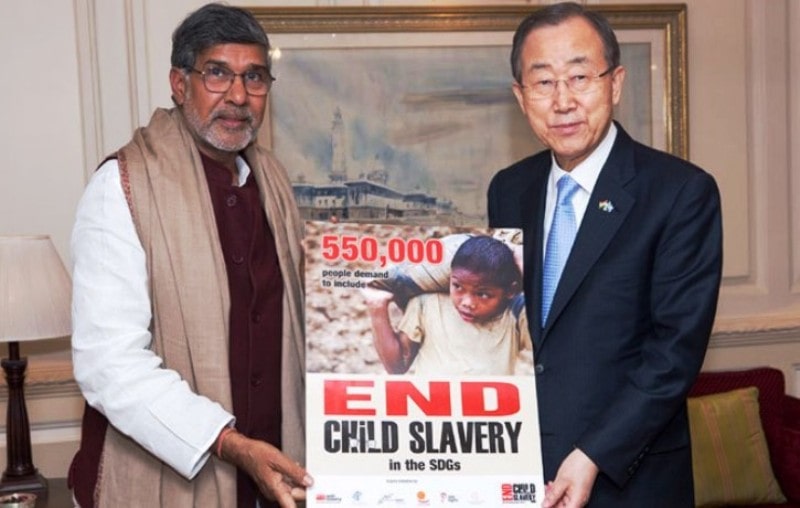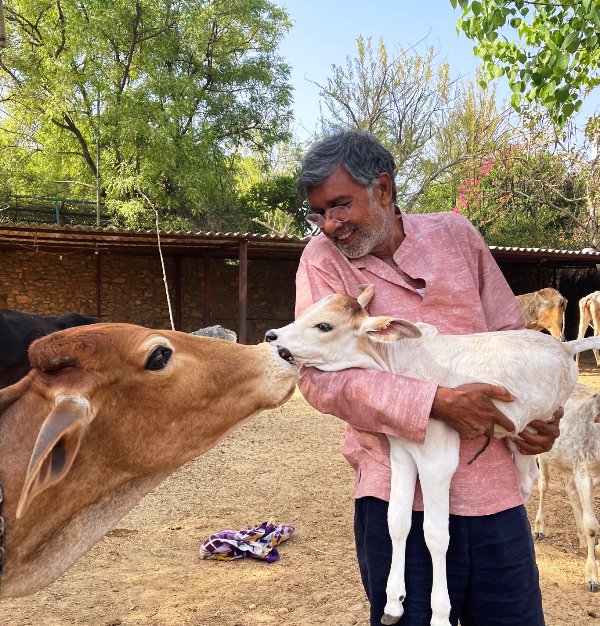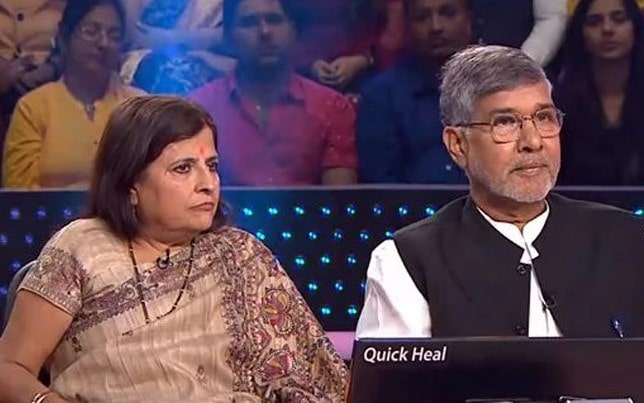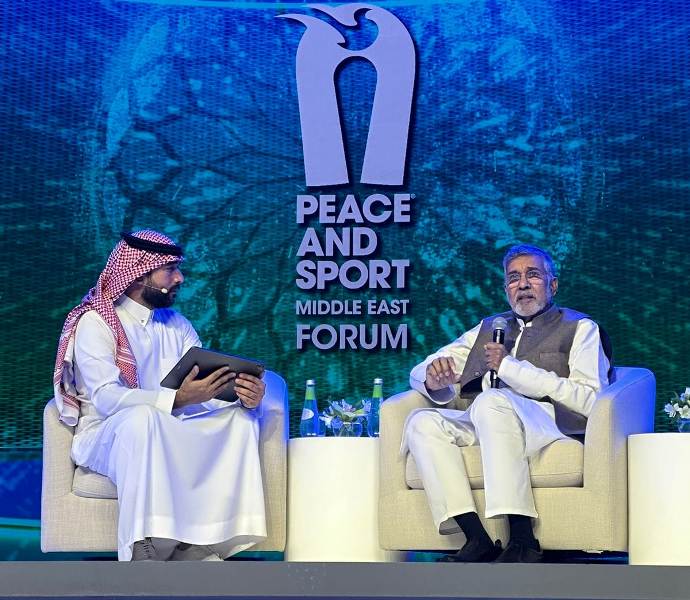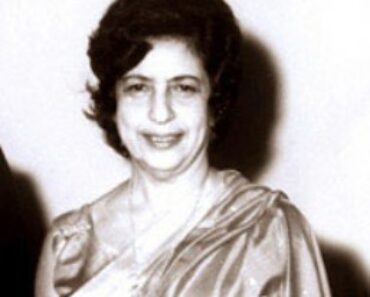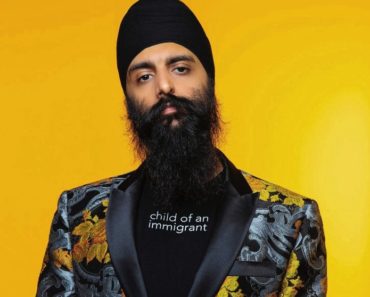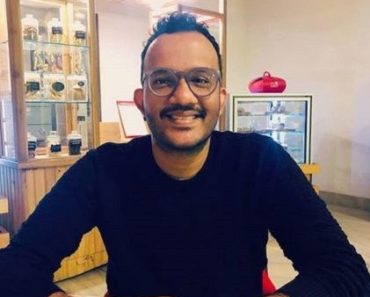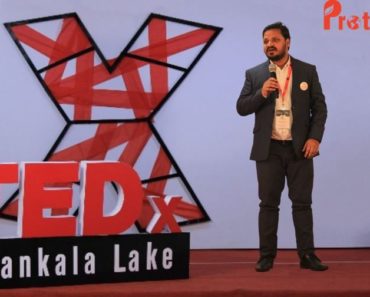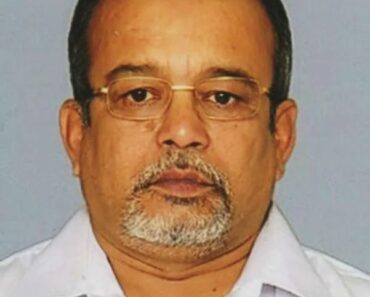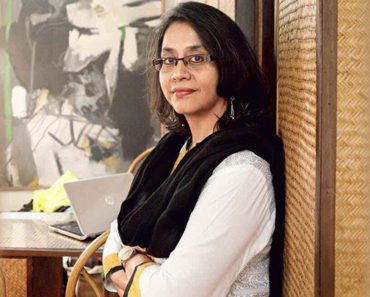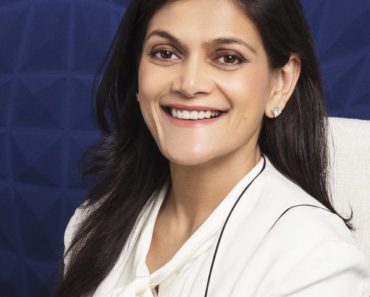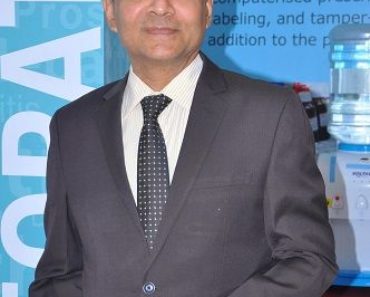Kailash Satyarthi is an Indian electrical engineer, author, and social activist, who is well-known for advocating for children’s rights in India and abroad. He and the Pakistani activist Malala Yousafzai jointly received the Nobel Peace Prize in 2014. Satyarthi is also known for leading numerous organisations and movements, including Bachpan Bachao Andolan, the Global March Against Child Labour, and the Global Campaign for Education. In 2021, he became the United Nations Sustainable Development Goals (UNSDG) Advocate.
Contents
Wiki/Biography
Kailash Satyarthi was born as Kailash Sharma on Monday, 11 January 1954 (age 69 years; as of 2023) in Vidisha, Madhya Pradesh, India. His zodiac sign is Capricorn. Kailash completed his schooling at the Government Boys Higher Secondary School in Vidisha, Madhya Pradesh. Thereafter, he enrolled at the Samrat Ashok Technological Institute (SATI), affiliated with Bhopal University (now known as Barkatullah University), in Vidhisha. There, he earned a bachelor’s degree in technology in electrical engineering. He later pursued a post-graduate diploma in engineering and began teaching engineering as a professor. He also earned a diploma (Kovid) in Sanskrit at the Bharatiya Vidya Bhavan. There, he studied Vedas and Upanishads to understand the history and philosophy of India. [1]The Guardian He, however, left his job to begin social activism.
Physical Appearance
Height (approx.): 5′ 11″
Hair Colour: Salt and Pepper
Eye Colour: Dark Brown
Family & Caste
Kailash Satyarthi belongs to a middle-class Brahmin family in Madhya Pradesh. [2]Kailash Satyarthi Children’s Foundation
Parents & Siblings
His father, Ramprasad Sharma, served in the Madhya Pradesh police as a constable. His mother’s name is Chironji Sharma. He has an elder brother.
Wife & Children
His wife, Sumedha Kailash, works with him as a social activist. The couple got married on 8 October 1977 in New Delhi.
He has two kids, a son named Bhuwan Ribhu, and a daughter named Asmita Kailash. Both his kids are social activists and work with him.
Relationships/Affairs
Before getting married to each other, Kailash and Sumedha dated each other. Kailash initially met Sumedha in Delhi, where she worked as the co-editor of Jangyan, an Arya Samaj magazine. They dated for nearly a year before Sumedha’s parents proposed marriage to Kailash’s parents in Vidisha. However, Sumedha’s family was unimpressed with Kailash’s local reputation due to his social activism. Despite her family’s objections, Sumedha insisted on marrying him. [3]The Economic Times
Religion/Religious Views
He follows Hinduism. In an interview, Satyarthi said he was not religious and did not visit temples. He further said that he worshipped children, whom he thought were the true faces of gods. He talked about it, in an interview, and said,
I am not a religious person. I’ve not gone to a temple or mosque in the last 40 years. I don’t worship in temples because i worship children — by giving them freedom and childhood. They are the true faces of God and that is my strength.” [4]The Times of India
Signature/Autograph
Social Activism
Child’s Rights Activism
Early Beginning
Kailash Satyarthi began advocating for the rights of poor children when he was in Class 5. In an interview, Kailash said that he started questioning the difference between his and other children’s lives after he saw a poor cobbler forcing his son to work as he was unable to fund his son’s education. Motivated to do something for the poor kids, he later formed a group of like-minded students in his class and began collecting study materials, such as books, to distribute them among the poor children. He was able to collect over 2,000 books and managed to distribute the books to needy students with the help of his school’s headmaster. Later, the idea of collecting books and distributing them gained immense popularity in Vidisha, and it was adopted by many schools, which eventually led to the establishment of a book bank in the city, where poor students could visit and read books. It was during the 1960s and the 1970s that Kailash was influenced by Mohandas Karamchand Gandhi’s ideals of “Ahimsa” (non-violence). He played a pivotal role in the drafting and implementation of the Child Labour (Prohibition and Regulation) Act in 1986. Satyarthi introduced the idea of the ‘Triangular Paradigm’ in global discussions on policies. This concept highlights the interconnection between child labour, illiteracy, and poverty.
Bachpan Bachao Andolan (BBA)
In 1980, he started Bachpan Bachao Andolan (BBA), an organisation aimed at advocating for and protecting the rights of children. It became one of the first organisations in India to be established to protect kids from child labour and trafficking.
After establishing BBA, he went to Punjab, where he rescued many children working in mining quarries as well as in brick kilns. Thereafter, he went to Bihar, where he organised the National Level Chaupal on Bonded Labour at Daltonganj, Palamu. In December 1985, he rescued children working as miners in Uttar Pradesh. He even managed to secure a compensation of Rs. 6,000 for the rescued children from the state government.
In 1996, he came up with the concept of the Global March Against Child Labour in New Delhi.
In 1997, he organised the first-ever National Bal Sansad and Bal Adalat in New Delhi. The event was attended by more than 20,000 people. On 17 January 1998, he organised a global march in which he covered 80,000 kilometres across 103 countries with more than 7.2 million participants. The march ended at the International Labour Office (ILO) in Geneva on 1 June 1998. It led to the implementation of the ILO Convention 182 on the Worst Forms of Child Labor, making it the only universally accepted convention in the ILO’s history.
The global march led to the creation of the South Asian March Against Child Trafficking for Forced Labour in 2007. It led the South Asian Association for Regional Cooperation (SAARC) to include child trafficking as a part of its manifesto. In 2009, the Supreme Court established the All India Legal Aid Cell on Child Rights under the National Legal Services Authority in India (NALSA) with BBA. In 2001, he led the Shiksha Yatra, a march aimed at raising awareness about children’s right to education. The Yatra paved the way for the implementation of the 86th Amendment Act, which made the Right to Education a fundamental right.
Bachpan Bachao Andolan published a research report titled “Missing Children of India” on 8 December 2011. Through BBA, he has organised numerous demonstrations against child abuse and has also involved influential personalities in the cause. BBA also works with the Indian government and various law enforcement agencies in rescuing children, and as of 2023, the organisation has rescued more than 126k children worldwide.
The organisation not only focuses on rescuing the children, but it also emphasizes the children’s rehabilitation as well as their integration into society. The rescued kids are taken to ashrams, like Mukti Ashram on the outskirts of Delhi and Bal Ashram in Virat Nagar, Rajasthan. Mukti Ashram is a place for children rescued from Delhi and nearby areas. There, the kids receive medical attention, food, clothes, and shelter until their parents or family members arrive to take custody. However, those kids who do not have a family stay at Bal Ashram, where they are given education to help them make money to sustain themselves when they grow up.
South Asian Coalition on Child Servitude (SACCS)
In 1989, he founded the South Asian Coalition on Child Servitude (SACCS) in New Delhi to combat child trafficking in South Asian countries. It is a branch of the BBA.
GoodWeave International
Satyarthi established GoodWeave International (formerly known as Rugmark) in 1994. It’s a group of non-profit organizations working together to stop kids from working in rug making. They have a program where companies can get a special logo if they prove that their products are not made by children. Rugmark initiated numerous campaigns aimed at raising user awareness amongst consumers in the US and the European Union (EU) to inform them about the use of child labour in the day-to-day products that they use. According to sources, Kailash Satyarthi introduced the social accountability concept at a time when the term Corporate Social Responsibility (CSR) was not formulated. In 2012, he and the Government of Germany demanded the International Labour Organisation (ILO) to make laws aimed at eliminating child labour and abuse. This led to the formulation of the International Programme on the Elimination of Child Labour (IPEC).
Global Campaign for Education (GCE)
GCE is an international initiative started by Satyarthi in 1999. The initiative aims at bringing together various NGOs advocating for children’s rights as well as education for them. The initiative includes organisations such as ActionAid, Oxfam International, and Education International. As of 2023, the initiative is active in more than 80 countries.
Kailash Satyarthi Children’s Foundation (KSCF)
KSCF was founded in 2004 in India. Later, KSCF launched several initiatives such as the Bal Mitra Gram (BMG) aimed at promoting a friendly atmosphere for children to grow up in villages and the Bal Mitra Mandal (BMM) aimed at creating a child-friendly atmosphere in the slums of India. KSCF has also started many institutes such as Satayrthi Global Policy Institute For Children (SGPIC) and Under Tactical Response Against Child Cyber Exploitation (TRACE). The foundation has also assisted the Government of Maharashtra in upgrading its technology to ensure speedy delivery of justice to the victimised children as well as to stop child abuse in the state.
The organisation is also functioning in the United States of America (USA). In 2016, the foundation launched the 100 million campaign. The campaign aimed to enrol 100 million people across the globe to help 100 million marginalised children. The campaign operated with the assistance of global organisations including the Global Students Forum (GSF), the All-Africa Students Union (AASU), the European Students’ Union (ESU), the Organising Bureau of European School Student Unions (OBESSU), the Commonwealth Students Association (CSA), Education International, and the Inter-Parliamentary Union (IPU).
On 11 September 2017, Satyarthi, through KSCF, initiated the Bharat Yatra campaign from Kanyakumari. The campaign intended to raise awareness about children’s rights and how to protect them from abuse. The campaign covered over 12,000 kilometres across 22 states and Union Territories and was joined by more than 5,000 NGOs. Over 1.2 million people marched for 35 days, leading to the implementation of the 2018 Criminal Law Amendment Act, which imposed harsh penalties for child rape. Moreover, the Yatra led to the passage of the Anti-Human Trafficking Bill in the 16th Lok Sabha.
In October 2018, the Government of Jharkhand and the KSCF signed a Memorandum of Understanding (MOU) to deal with the problem of children working in the mica mining quarries in the state.
Other Activism
After joining the Samrat Ashok Technological Institute (SATI), he got involved with the student unions in the college and began writing articles for a Delhi-based Arya Samaj magazine titled Jangyan. In college, he organised several events aimed at mixing the marginalised communities such as the Dalit community with the upper caste communities. He received a lot of criticism from the influential figures of the society, especially the priests, for doing so. In an interview, he talked about an incident in which he was boycotted by his family and society for organising an event for the Dalit community in which he ate the food that was prepared by them. He further claimed that he had invited many politicians and well-known figures to attend the event. Initially, they accepted the invite; however, no one came to the event. After the event, many local priests said that Kailash had become impure by eating food made by the Dalits. The priests asked the family either to disown him or to relocate. He talked about it, in an interview, and said,
The priests were shocked and they asked my family members to disown me and shift me to a separate room in the backyard or face ostracisation from the community. I was instructed not to enter the house and was given separate utensils. It was further decided that my food would be sent to the small room itself. Who are these people to throw me out of the community? I do not want to be associated with a hypocrite community in the first place.”
In 1984, after the anti-Sikh riots in India, Kailash began advocating for justice for the victims of the Sikh community who were affected by the riots. He established the Nagrik Ekta Manch to do so. Satyarthi also assisted the Sikhs by visiting relief camps set up by the Indian government as well as the international communities to take an assessment of the situation. Reportedly, Satyarthi saved the lives of many Sikhs by giving them shelter in his house during the 1984 riots. Despite receiving death threats, he organised many candle marches and organised exhibitions with photos of the victims to seek justice for them.
Author
Apart from indulging in social activism. Satyarthi is also known to have penned many books, including Will for Children (2017), Because Words Matter (2017), The Light of the Same Sun (2017), Badlav Ke Bol (2018), Every Child Matters (2018), and Covid-19 : Sabhyata Ka Sankat Aur Samadhan (2021), and The Book of Compassion (2024).
Controversy
Accused of Misappropriation of Funds
In 1997, several trustees of the Mukti Pratishthan Trust (MPT), a charitable trust, filed a complaint against Kailash Satyarthi and Sumedha Kailash in a Delhi court, accusing them of indulging in corruption and malpractices while serving in the trust. The complaint also alleged that the couple used money received in charity by the trust for their personal use like going on foreign trips and buying expensive valuables. [5]The New Indian Express In return, Kailash and Sumedha filed litigation in the court, denying the allegations and urging the court to dismiss the case. The couple also claimed that false charges were framed by the MPT on the instructions of their mentor Swami Agnivesh, a political figure and Arya Samaj leader, for his gains. In 2015, the court received information that the trust had lost the record of the accounts to support their claims. [6]India Today
Awards, Honours, Achievements
- The Aachen Peace Prize by the Government of Germany (1994)
- The Trumpeter Award by the National Consumers League (1995)
- Robert F. Kennedy Human Rights Award by the RFK Human Rights Foundation (1995)
- Golden Flag Award (Netherlands) (1998)
- De Gouden Wimpel Award (Netherlands) (1998)
- La Hospitalet Award (Spain) (1999)
- Friedrich Ebert Stiftung Award (Germany) (1999)
- Wallenberg Medal by the University of Michigan (2002)
- Freedom Award (USA) (2006)
- Included in the US State Department’s list of Heroes Acting to End Modern Day Slavery (2007)
- Gold Medal by the Italian Senate (2007)
- Alfonso Comin International Award by the Alfonso Comín Foundation (Spain) (2008)
- Defenders of Democracy Award by the Parliamentarians for Global Action (PGA) (2009)
- Nobel Peace Prize for focusing attention on the grave exploitation of children for financial gain (2014)
- Honorary Doctor of Philosophy Degree by Alliance University (2014)
- Honoris Causa in Science by Amity University, Gurgaon (2015)
- Humanitarian of the Year Award by the Harvard University (2015)
- Member-Fellow of the Australian Institute of Management (2016)
- Doctor of Humane Letters by the Lynchburg College (USA) (2016)
- Doctor of Law (LLD) by the West Bengal University of Juridical Sciences (2016)
- Doctor of Science (Honoris Causa) by the Panjab University (2016)
- P.C. Chandra Puraskaar for his global crusade against child slavery and exploitative child labour (2017)
- Guinness World Record for Largest Child Safeguarding Lesson (2017)
- Doctor Honoris Causa by the EL Rector Magnífico de la Universidad Pablo de Olavide (Spain) (2017)
- Doctor Honoris Causa in Science by Amity University (2018)
- The Santokbaa Humanitarian Award by Shree Ramkrishna Knowledge Foundation (SRKKF) (2018)
- Lifetime Achievement Award by the Wockhardt Foundation Limited (2019)
- The Mother Teresa Memorial Award for Social Justice (2019)
- Doctor Honoris Causa by the Universidad Internacional de La Rioja (2019)
- Dr. Bhai Mohan Singh trophy (2020)
- Rotary Award of Honor by Rotary International (2022)
Bike Collection
He owns a Royal Enfield.
Facts/Trivia
- Kailash is a keen writer and developed an interest in writing during childhood. He has written numerous poems under the title Chalo Hawaon Ka Rukh Moden. He also wrote the theme song “Hum Nikal Pade Hain” for the 1998 Global March Against Child Labour.
- He follows a vegetarian diet. [7]Kailash Satyarthi Children’s Foundation
- He loves photography and cooking. According to Kailash, his wife, Sumedha, is fond of the stuffed tomato dishes and parathas that he makes. He talked about it, in an interview, and said,
There is one dish that my wife really appreciates – stuffed tomatoes. I had made this dish for Sumedha Ji before we got married; I think it helped in influencing her decision to get married to me.”
- Kailash decided to drop his surname Sharma and adopt Satyarthi, meaning seeker of the truth, after the priests and the high-caste elements of the society coerced his parents to disown him for interacting with the Dalit community while he was studying in college. He talked about it, in an interview, and said,
My ‘punishment’ was being decided – whether I would be expelled from my caste, or I would be sent to Haridwar for ‘purification’. This made me even more furious. It was decided that I would be given a separate room and I would be treated like an untouchable. I stayed there for many years in that room, and my mom used to cry while giving me food from a distance. I gathered strength with a lot of difficulty. I then decided that who are they to expel me? I set myself free from the shackles of caste and changed my surname.”
- Even though Kailash Satyarthi likes to ride bikes, he has been advised by the doctors to avoid bike riding due to injuries he sustained in his spinal cord after being attacked several times by the mafias due to social activism.
- For his social activism, Satyarthi has received many death threats. In the early 1980s, he was attacked and wounded by the mafia in Uttar Pradesh (UP). His friends were also killed, and his house was ransacked and set on fire.
- In 1981, he started a social activism magazine titled Sangharsh Jari Rahega. The magazine aimed to influence as many people as possible to join his cause and advocate for children’s rights.
- Stayarthi has led many campaigns in Pakistan, Sri Lanka, and Nepal to raise awareness against child labour. He almost got arrested by the Pakistani military while leading one such awareness campaign in Pakistan. While talking about it, in an interview, he said,
I helped start Pakistan’s anti-child labour movement, when Pakistan’s army wanted to kill me outside Lahore in 1987. I was addressing brick-kiln workers there when soldiers came and put a dozen guns on my head. I smiled and said, please kill me but only after 10-15 minutes when I’ve finished talking to these people.”
- In 2004, while rescuing trafficked Nepalese under-aged girls from a circus in Uttar Pradesh, Satyarthi was attacked by goons hired by the circus’s owner. He was beaten with clubs, sticks, and iron rods, which led to severe injuries. Despite his injuries, Satyarthi managed to pressurise the UP government to take action against the circus owner by going on an indefinite strike.
- He appeared in the 2005 PBS series “The New Heroes,” which was presented by the actor Robert Redford.
- In 2007, a short documentary film titled Ropes In Their Hands was produced by BBA. The film was based on the 2004 rescue operation in Uttar Pradesh in which Kailash and his organisation rescued many underaged Nepalese girls from a circus. The film was invited to be screened at the New York International Independent Film and Video Festival (NYIIFVF) in April 2007.
- Queen of Jordan Rania Al Abdullah endorsed his 1-goal campaign during the 2010 FIFA World Cup. The campaign was designed to advocate for children’s rights and sought to mobilize millions of people for the cause.
- In 2011, after Kailash Satyarthi filed a PIL regarding child trafficking in the Supreme Court of India, the court defined the term ‘child trafficking,’ which led to the implementation of the Palermo Protocol, an international agreement. These actions prompted the Indian government to amend Section 370 and Section 370A of the Indian Penal Code (IPC) to enhance its effectiveness in combating human trafficking.
- According to Asmita, Kailash’s daughter, her maternal grandparents disowned Sumedha Kailash after Kailash decided to quit his job as a teacher and become a social activist. She talked about it, in an interview, and said,
When he decided to quit his teaching job at a college in Vidisha, my mother’s family was very unhappy. They were not too happy anyway, because they had eloped and married. His decision to quit gave my maternal parents another reason to disown my mother. But my mother supported him through very difficult times.”
- Satyarthi has served as a member of the board of several NGOs, including the Center for Victims of Torture (CVT), the International Labor Rights Forum (ILRF), and the International Cocoa Organization (ICCO).
- He has received invitations on numerous occasions to address elected representatives of countries such as the United States of America, Germany, and the United Kingdom.
- In 2014, he led the End Child Slavery Week Campaign, which gained appreciation from many leaders.
- In January 2015, Kailash handed over his Nobel Peace Prize medal to President Pranab Mukherjee, and it was later exhibited at the President’s House Museum in New Delhi.
- In the same year, to include and prioritize the abolition of child slavery in the United Nations Sustainable Development Goals, Kailash Satyarthi presented a petition with 5,50,000 signatures to UN Secretary-General Ban Ki-moon.
- In 2016, he launched “Laureates and Leaders for Children,” a program with the goal of collaborating with world leaders and Nobel laureates to support underprivileged children.
- In February 2017, robbers broke into Kailash Satyarthi’s residence in Greater Kailash, New Delhi, and stole his Nobel Peace Prize medal and citation, which he received in 2014. However, the stolen items were later recovered by the Delhi Police.
- He is an avid animal lover and has numerous cowsheds in his ashrams.
- In September 2017, Kailash Satyarthi was recognized by India Times as one of the 11 Human Rights Activists dedicated to the mission of ensuring a life of dignity for others.
- He was invited to give a speech at the 4th Global Conference on Child Labour held in Buenos Aires, Argentina, in 2017.
- In the same year, Kailash, along with his wife, appeared in the reality quiz show Kaun Banega Crorepati (KBC). The amount that they won in the show was dedicated to advocate for the children’s rights.
- In 2018, a documentary film titled The Price of Free was released. The documentary was based on Kailash Satyarthi’s life and work; the film went on to win the Sundance Grand Jury Prize at the Sundance Film Festival US.
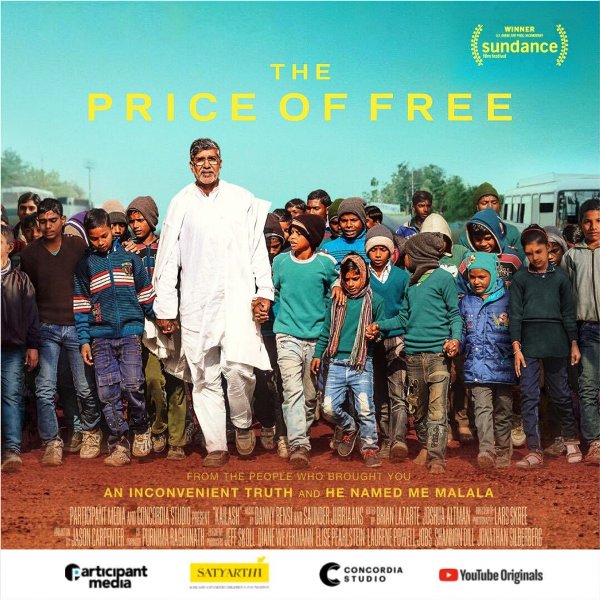
- In 2021, UN Secretary-General Antonio Guterres appointed Kailash Satyarthi as the United Nations Sustainable Development Goals (UNSDG) Advocate. In an interview, Kailash talked about his appointment and said,
It is a recognition of the seriousness of the crisis faced by children today in this world. We have witnessed the first increase in child labour in two decades, even before the pandemic hit a warning sign that we are facing the threat of failing on the promises of Agenda 2030. Peace, justice and sustainability will only be achieved when every child is free, safe, healthy and educated. Every child matters.”
- He attended the Peace and Sport Middle East Forum in Riyadh in 2023.
References

